Are you worried that you or a loved one might have a barley allergy? Whether it’s a new development, or something long-standing, understanding the signs and symptoms of this condition can help ensure the best possible outcome. Here you will find the most up-to-date information on barley grass allergies.
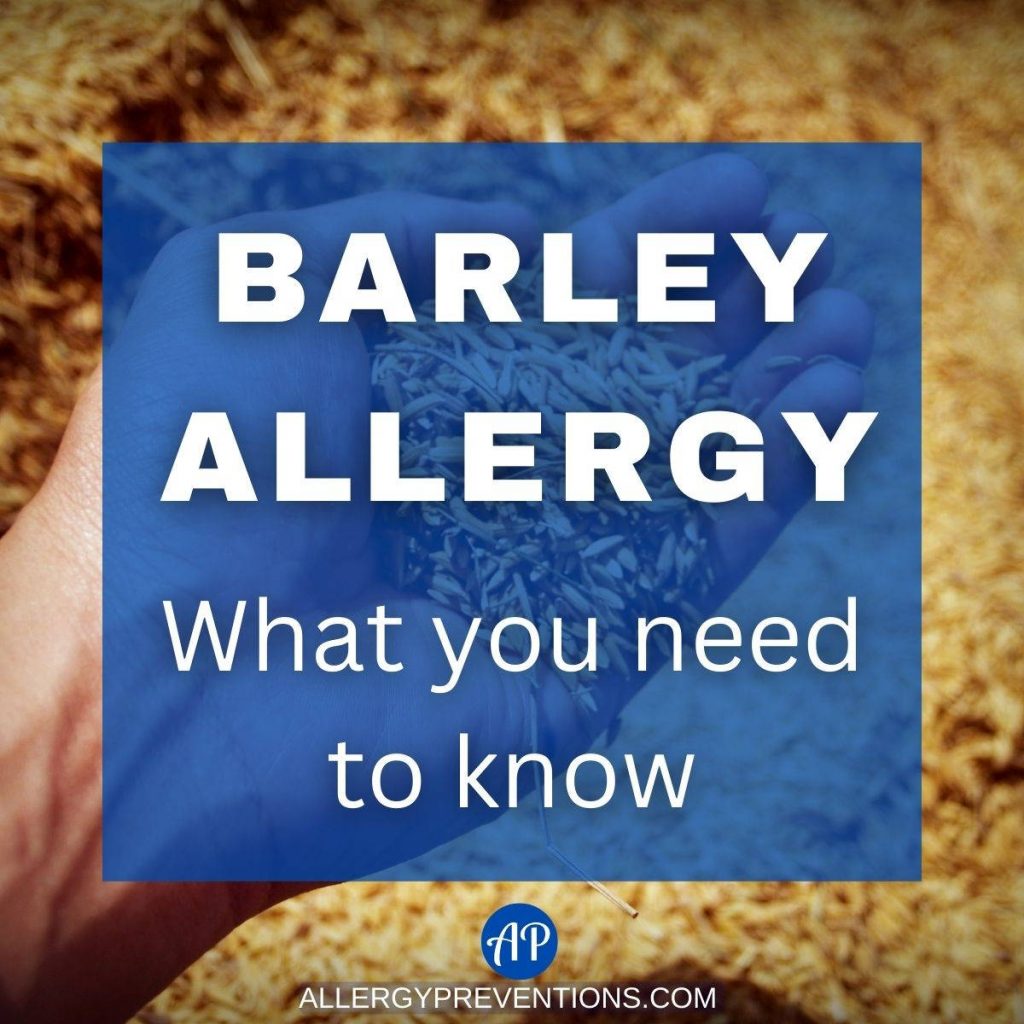
What is barley?

Barley is an ancient cereal grain, with evidence of its use dating back 10,000 years in the Middle East. Barley was an important part of the diets of many civilizations in early history and continues to be a staple in many countries today.
It is a hardy crop that can grow in a variety of climates and soil types, making it popular for cultivation in many parts of the world.
Barley flavor and uses
Barley has a nutty flavor and chewy texture that makes it an ideal ingredient for soups, stews, or as a side dish to accompany other dishes. It can also be ground into flour for baking purposes or malted to produce beer and other alcoholic beverages. It is high in dietary fiber, vitamins, and minerals, and contains some protein.
What is a barley allergy?
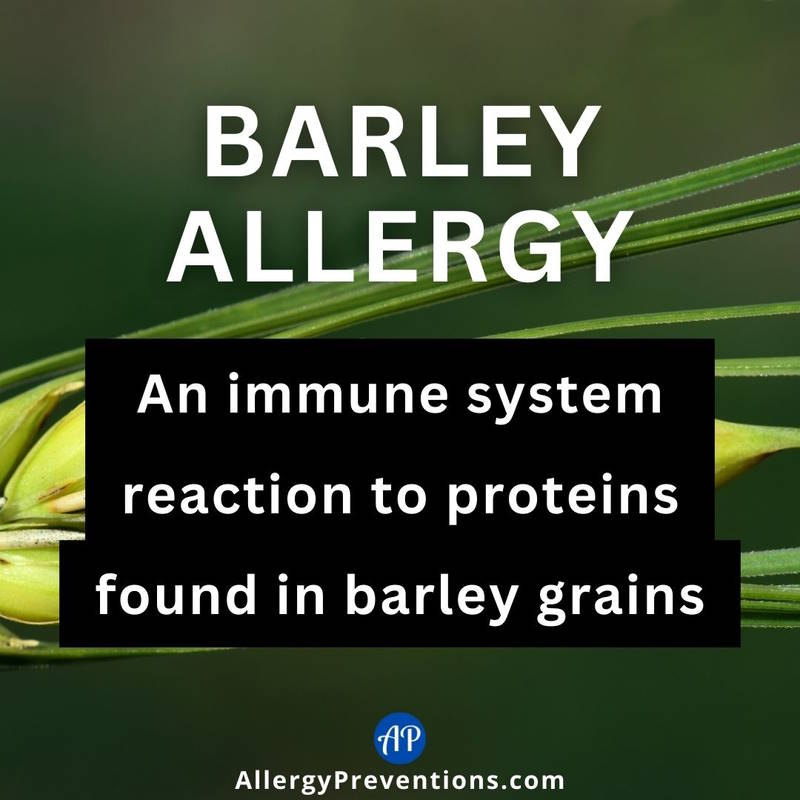
A barley allergy is an immune system reaction to proteins found in barley grains. For those who suffer from a barley grass allergy, even the smallest traces of this grain can cause serious and potentially life-threatening reactions.
Reactions to barely that do not involve the immune system are considered a barley intolerance.
Other names for barley
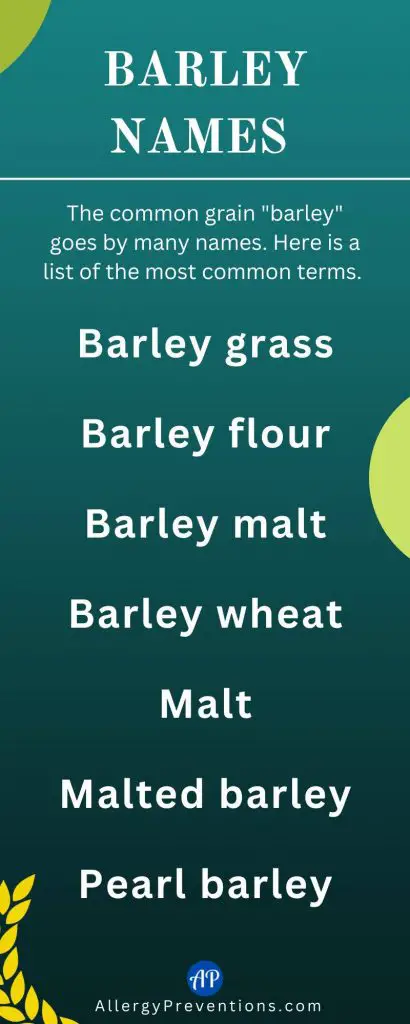
There are a few different names that are commonly associated with the term “barley”. The most common names for barley are:
- Barley grass
- Barley flour
- Barley malt
- Barley wheat
- Malt
- Malted barley
- Pearl barley
Can you be allergic to barley but not wheat?
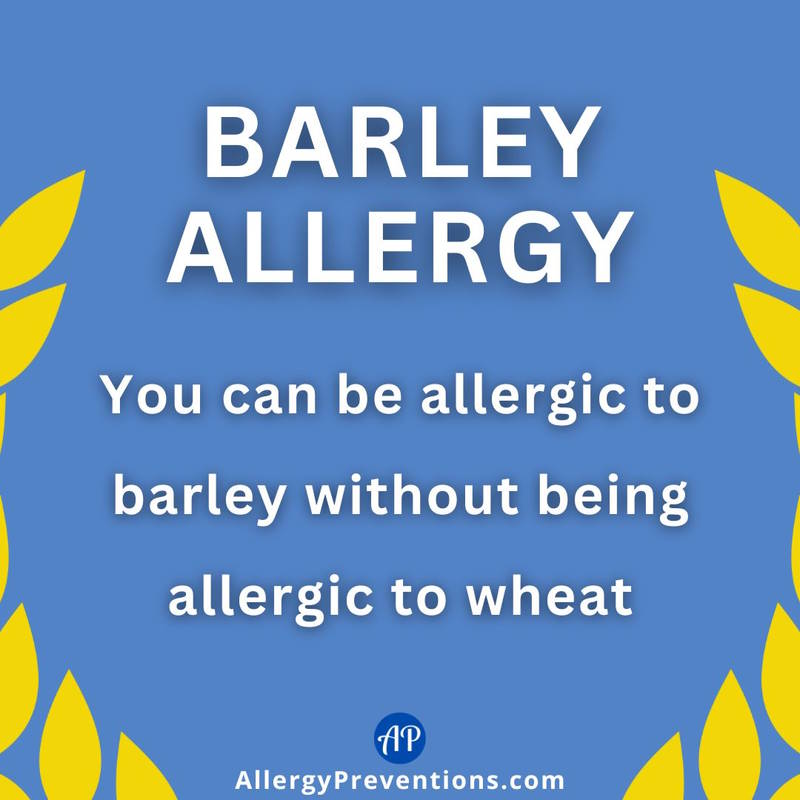
Yes, it is possible to be allergic to barley without experiencing an allergy to wheat. Even though these grains share similar proteins, that doesn’t necessarily mean you will have the same reaction when exposed to both.
Keep in mind that both forms of these grains contain gluten and should be avoided if you have a gluten sensitivity or intolerance.
Barley allergy symptoms
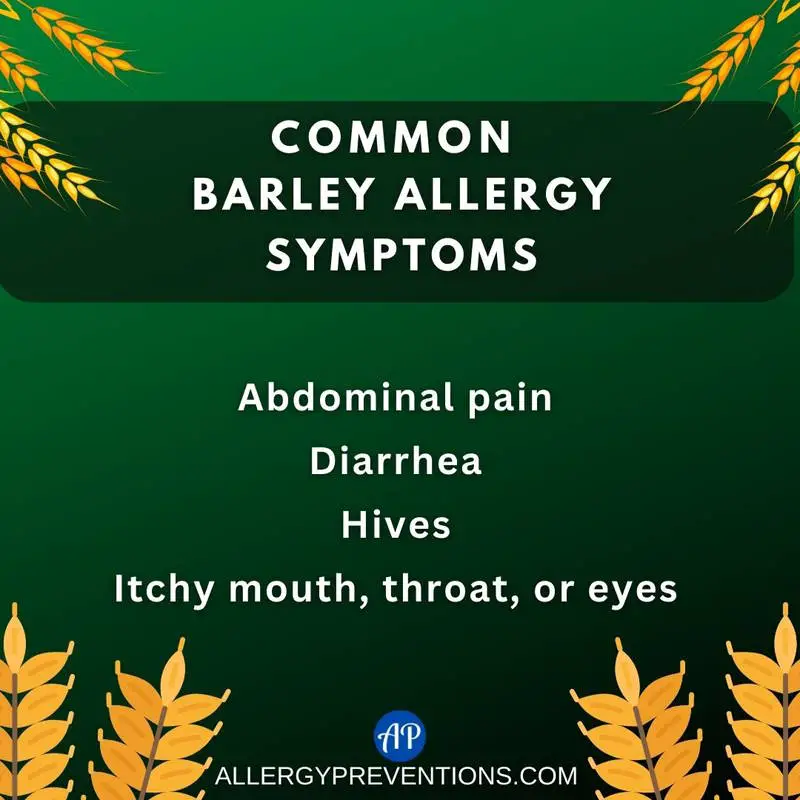
A barley allergy can manifest itself in many different ways, ranging from mild symptoms like rashes, skin irritation, and oral allergy syndrome (OAS) to more severe reactions like difficulty breathing or anaphylactic shock.
Common barley signs and symptoms
Common barley allergy symptoms that adults may experience are:
- Abdominal pain
- Diarrhea
- Hives
- Itchy mouth, throat, or eyes
In extreme cases, anaphylaxis can result from this allergy. If you suspect that you may have an allergy, it is important to seek medical care immediately.
Why a barley allergy may go undiagnosed
A barley allergy may go undiagnosed because some of the most common signs of an allergy to barley are similar to other common health issues. For instance, abdominal pain and cramping, nausea, diarrhea, and bloating are all signs of both IBS and food allergies.
Additionally, the lack of awareness surrounding food allergies can lead people to write off their symptoms as something else rather than attributing them to an underlying allergy.
Testing for a barley allergy

There are two main tests for barley grass allergies, a blood test, and a skin test. Both tests are effective in diagnosing allergies, but the skin test is more accurate.
Barley allergy blood testing
The most common way to test for a barley allergy is with a blood test. This test checks for the presence of Immunoglobulin E (IgE) antibodies in the blood which are produced when your body comes into contact with an allergen such as barley.
The results from this type of test are usually available within a few days and they provide information on what types of allergens you may be allergic to.
Skin prick test for barley allergies
In addition to a blood test, there are also skin prick tests used to diagnose allergies. During this type of test, small amounts of the allergen are placed on your skin’s surface and then pricked with a needle. If you have an allergic reaction to the allergen, it will manifest as redness and swelling at the site and indicates an allergy.
Overall, testing is important if you think you may be allergic to this particular food item or if you’re experiencing any symptoms associated with an allergic reaction after eating something with barley in it.
After diagnosis
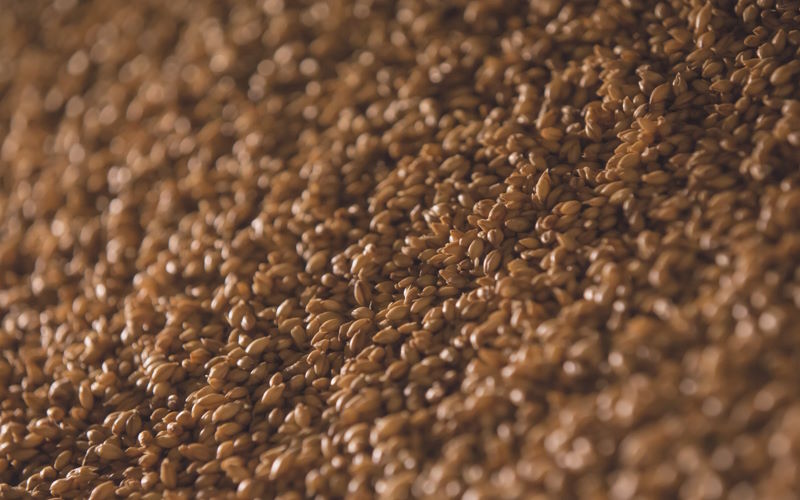
Once your diagnosis is confirmed, your doctor will most likely recommend you avoid all products containing barley or foods derived from it such as beer and malt vinegar.
Avoid cross-contamination
Additionally, it’s important for individuals with a barley allergy to be aware of cross-contamination risks. Cross-contamination can occur when eating out or preparing food at home.
For instance, if a spoon that has been used to mix barley soup is then utilized in the creation of chicken soup without barley, there’s an increased chance of barley contaminating the chicken soup.
Talk with your family about your allergy

It is also important to let your friends and family know if you have a barley allergy. They can help you avoid products containing barley when eating out or shopping for groceries. Also, your close family and friends will be your main support if you need it.
Additional barley allergy information
There are more foods to avoid besides beer and malt vinegar with a barley allergy, check out Barley Allergy: What Foods to Avoid for a more in-depth list.
